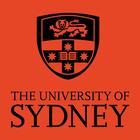Defined as the expression or application of a human creative skill, predominantly in a visual form, art is one of the oldest academic disciplines, predating the evolution of both language and science-related skills. Art is a vital form of communicating concerns, ideals and attitudes; and even before there was standardised human language, cavemen were using the medium of art to share stories and information. Even today, art is considered the only form of communication that can be accessed by every member of humanity across the globe.
As a subject matter, art is particularly fascinating and there are a wide range of courses available to study, from the history of fine art to how to create artworks of your own.
If you’re fascinated by the principles of aesthetics and you have a creative flair, then studying art may be the perfect course for you.
It is important that students not only have a flair for the creation of art, but are also able to have an interest in understanding the historical and social contexts in which the art itself has been created. For most courses you will not only be expected to create artworks of your own, but you will be expected to learn the history behind a wide range of artistic concepts from the pre-Raphaelite brotherhood to the surrealist movement; so an interest in history is essential.
Art is also a very practical degree and although you will be expected to attend lectures, much of your work will take place within your non-contact time. By the end of your course you will have been expected to produce a portfolio of work which will showcase your skills. In order to make the most of your study, you should be self-motivated and able to work independently.
Although practical in nature, art degrees do not lend themselves to specific career paths. Most students who study art do so with the intention of becoming artists themselves within their specific area of expertise.
However, with an average starting salary of £17,000 in the UK, the majority of art graduates take on part-time or freelance work, or they pursue careers in industries such as publishing, graphic design or journalism. However, this average salary differs depending upon company and region.
The application process for those wishing to study art differs from many other courses. While potential undergraduates are expected to have A-level or equivalent qualifications, most universities will expect potential students to have previous work experience and/or to be able to attend an interview with a portfolio of their work, before offering them a place on a course. Those who are non-native speakers of English will also be expected to sit the ITELS test and score a minimum of 6.0 for any course of study, whether undergraduate or postgraduate
There are many study options available to those who wish to take a qualification in art or in an art-related subject. From photography and film to graphic design and fine art, most courses will last a minimum of a year and degrees will last 3-4 years. A high portion of your assessment will be based on a portfolio of your work.
Location is a key consideration to take into account when you’re choosing where it is that you would like to study your art degree. Given that the subject matter doesn’t lend itself to any specific career, your extracurricular activities will have an impact upon your future employability. Ideally you should apply to study at a university located in the heart of a town or city with is renowned for its art scene, such as London, Leeds or Edinburgh. This will also have the added benefit of allowing you to meet friends with similar interests to you.
It is also important to consider which area of art you find the most fascinating. You will spend the next 3 years studying art (at least) so it is important that you end up studying an art subject that appeals to your area of interest. Some universities will offer more modules based on art history, which will be of little use if you want to pursue a career in illustration.
Of course fees and academic grades should also come into consideration when deciding where to study. Many of the prestigious arts colleges expect applicants to have a minimum of 3 A-levels, or a 2:1 degree for postgraduate courses as well as a strong portfolio. Do you expect to meet these criteria? If you feel your portfolio does not truly reflect your abilities at the moment, consider waiving your application until another year and take a gap year to improve the standard of your portfolio and gain some valuable experience.
If you are struggling with fees, or are still applying for funding, there are a number of bursaries and scholarships available for students.






 Get application advice
Get application advice